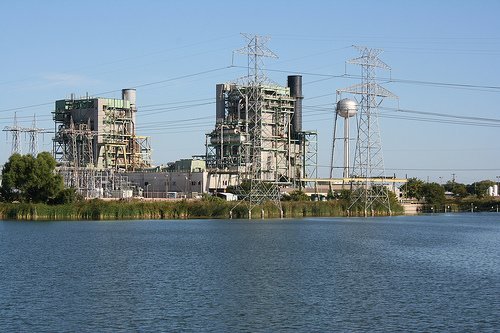A federal appeals court ruled the U.S. Environmental Protection Agency violated the Clean Air Act by rejecting Texas’ clean-air permitting program.
Richards Devised Program
Former Texas Gov. Ann Richards (D) started the disputed air permitting system in 1994. The program was novel at the time, allowing industrial plants to modify their facilities and protecting them from further regulation as long as their emissions did not increase beyond what is allowed in the permit.
EPA disallowed Texas’s air permitting system in 2010. The agency decided the system “did not meet several national requirements for protection of health and the environment.”
Court: EPA Acted Capriciously
In order to preserve state control of the air permitting program, the state of Texas and business groups sued EPA in the U.S. Court of Appeals for the Fifth Circuit.
A panel of judges ruled 2-1 that EPA violated the Clean Air Act because it did not provide sufficient justification for invalidating the Texas permit system. By acting without presenting proper justification, EPA’s actions were capricious, arbitrary, and beyond its statutory authority, the panel ruled.
“EPA’s objections to the emissions caps of the Flexible Permit Program rely on standards not found in the [Clean Air Act] or its implementing regulations,” wrote Judge E. Grady Jolly in the majority opinion.
Texas Emissions Declining
In a statement following the verdict, Texas Attorney General Gregg Abbott said EPA appeared to show no regard for the federal laws it claims to enforce. Abbot said the Texas air permitting system is a commonsense system that reduces pollution and fully complies with the Clean Air Act.
According to Abbot, EPA acknowledges that Texas is meeting Clean Air Act standards, in some cases years ahead of schedule. Moreover, Abbot pointed out, Texas air quality has improved dramatically in the 16 years since the program’s inception.
Merrill Matthews, a resident scholar at the Texas-based Institute for Policy Innovation, observes EPA decided to invalidate Texas’s flexible permit system in the same year former EPA official Al Armendariz explained EPA’s enforcement approach is to arbitrarily crucify and make examples out of those it regulates.
“The issue was never about clean air,” Matthews said. “Texas’s air quality has been improving. It was always about cracking the regulatory whip. Fortunately, we still have an independent court system that can rein in the Obama agenda.”
H. Sterling Burnett, a senior fellow at the Dallas-based National Center for Policy Analysis, says Texas’s long-running clean air program is working well. The plan safeguarded the environment and cut through bureaucratic red tape.
“Industry largely applauded the program because it streamlined their regulatory burden,” Burnett observed. “Yet, since 1994, when it was enacted during the Clinton administration, while the EPA never challenged the rule, it also never formally accepted it. Under this plan, Texas’s economy grew at a faster rate than the nation as a whole, while its emissions of regulated pollutants fell faster than the nation as a whole. A win-win, right?”
According to Burnett, EPA should place greater emphasis on real-world emissions and should encourage creative plans to reduce emissions, rather than discourage such plans.
“Fortunately, a federal court looked at the results rather than the formalities,” Burnett explained.
Preserving State Authority
Josiah Neeley, a policy analyst at the Armstrong Center for Energy & the Environment at the Texas Public Policy Foundation, says the court’s decision properly reaffirms state sovereignty.
“Under the federal Clean Air Act, there is a clear division of authority. EPA has the authority to set environmental standards, but the states retain authority over how to meet those standards. Texas’s flexible permitting program is a great example of a state program that lowers emissions and the cost of energy” while complying with the Clean Air Act, said Neeley.
Kenneth Artz ([email protected]) writes from Dallas, Texas.





